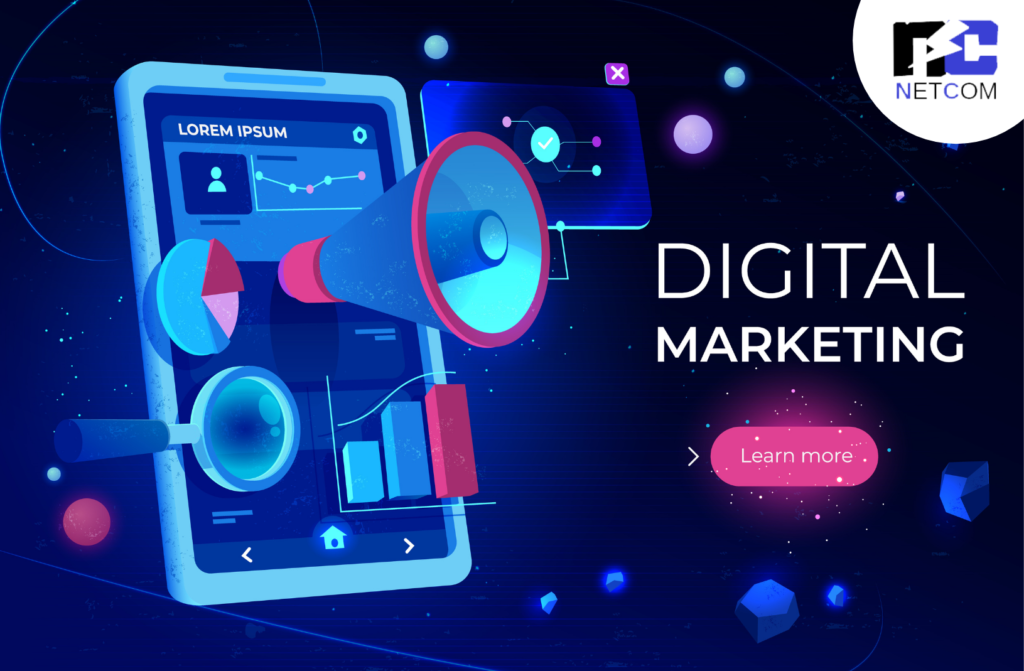In today’s rapidly evolving digital landscape, the significance of digital marketing for businesses cannot be overstated. As technology continues to advance and consumer behavior shifts, businesses must adapt and embrace digital marketing strategies to remain competitive and thrive in the modern marketplace. From increasing brand visibility to driving sales and fostering customer engagement, digital marketing offers a multitude of benefits that can propel businesses towards success. In this comprehensive guide, we delve into the reasons why digital marketing is essential for businesses of all sizes and industries.
1. Global Reach and Accessibility:
Digital marketing enables businesses to reach a global audience with relative ease. Unlike traditional marketing methods that are often limited by geographic boundaries and logistical constraints, digital marketing campaigns can be deployed across various online platforms, allowing businesses to connect with potential customers regardless of their location. With the proliferation of smartphones and internet access, consumers are constantly connected, providing businesses with unprecedented opportunities to engage with them through digital channels.
2. Cost-Effectiveness:
One of the most significant advantages of digital marketing is its cost-effectiveness compared to traditional marketing approaches. Digital marketing campaigns can be tailored to suit any budget, making it accessible to businesses of all sizes, including startups and small enterprises. Whether through search engine optimization (SEO), social media marketing, or email marketing, digital marketing offers a high return on investment (ROI) by targeting specific audiences and delivering personalized messages at a fraction of the cost of traditional advertising methods.
3. Measurable Results and Analytics:
Unlike traditional marketing methods, which often rely on subjective measures of success, digital marketing provides businesses with precise and measurable results. Through analytics tools and platforms, businesses can track the performance of their campaigns in real-time, allowing them to analyze key metrics such as website traffic, conversion rates, and engagement levels. This data-driven approach enables businesses to make informed decisions, optimize their marketing strategies, and allocate resources more effectively to achieve their objectives.
4. Targeted Marketing and Personalization:
Digital marketing allows businesses to target specific demographics, interests, and behaviors, ensuring that their messages resonate with the right audience. Through advanced targeting capabilities offered by platforms such as Google Ads and Facebook Ads, businesses can create highly personalized campaigns that speak directly to the needs and preferences of their target customers. By delivering relevant and tailored content, businesses can enhance the customer experience and build meaningful relationships that drive loyalty and repeat business.
5. Enhanced Brand Visibility and Awareness:
In today’s crowded marketplace, establishing a strong online presence is essential for businesses to stand out and attract customers. Digital marketing channels such as social media, search engines, and content marketing provide businesses with powerful tools to increase their brand visibility and awareness. By creating compelling content, engaging with audiences, and optimizing their online presence, businesses can elevate their brand and differentiate themselves from competitors in the minds of consumers.
6. Improved Customer Engagement and Interaction:
Digital marketing facilitates meaningful interactions between businesses and their customers, fostering engagement and building trust over time. Through social media platforms, blogs, and email newsletters, businesses can initiate conversations, respond to inquiries, and solicit feedback from customers in real-time. By actively engaging with their audience, businesses can cultivate a sense of community, demonstrate their expertise, and nurture long-term relationships that drive customer loyalty and advocacy.

7. Adaptability and Flexibility:
In the fast-paced digital environment, businesses must be agile and adaptable to respond to changing market conditions and consumer trends. Digital marketing offers unparalleled flexibility, allowing businesses to adjust their strategies in real-time based on performance data and market insights. Whether launching a new product, running a promotional campaign, or responding to customer feedback, businesses can quickly iterate and refine their digital marketing efforts to stay relevant and competitive in dynamic markets.
8. Access to Valuable Customer Insights:
Digital marketing generates vast amounts of data that can provide businesses with valuable insights into customer behavior, preferences, and purchasing patterns. By analyzing data from website analytics, social media metrics, and email marketing campaigns, businesses can gain a deeper understanding of their target audience and identify opportunities for growth and innovation. This data-driven approach enables businesses to refine their marketing strategies, tailor their offerings, and deliver more personalized experiences that resonate with customers.
9. Scalability and Growth Potential:
Digital marketing offers scalability and scalability, allowing businesses to expand their reach and grow their customer base without significant overhead costs. Whether scaling up advertising campaigns, launching new products, or entering new markets, digital marketing provides businesses with the tools and resources they need to achieve their growth objectives efficiently. By leveraging digital channels effectively, businesses can reach new audiences, drive sales, and accelerate their expansion trajectory.
10. Competitive Advantage and Survival:
In today’s hyper-competitive business landscape, digital marketing is no longer optional but essential for survival. Businesses that fail to embrace digital marketing risk being left behind by competitors who are more agile, innovative, and customer-centric. By harnessing the power of digital marketing, businesses can gain a competitive advantage, adapt to evolving market dynamics, and position themselves for long-term success in an increasingly digital world.
In conclusion, the importance of digital marketing for businesses cannot be overstated. From expanding brand reach and driving sales to fostering customer engagement and gaining valuable insights, digital marketing offers a myriad of benefits that are essential for business growth and success in the digital age. By embracing digital marketing strategies and leveraging the power of technology, businesses can unlock new opportunities, stay ahead of the competition, and thrive in an ever-changing marketplace.

